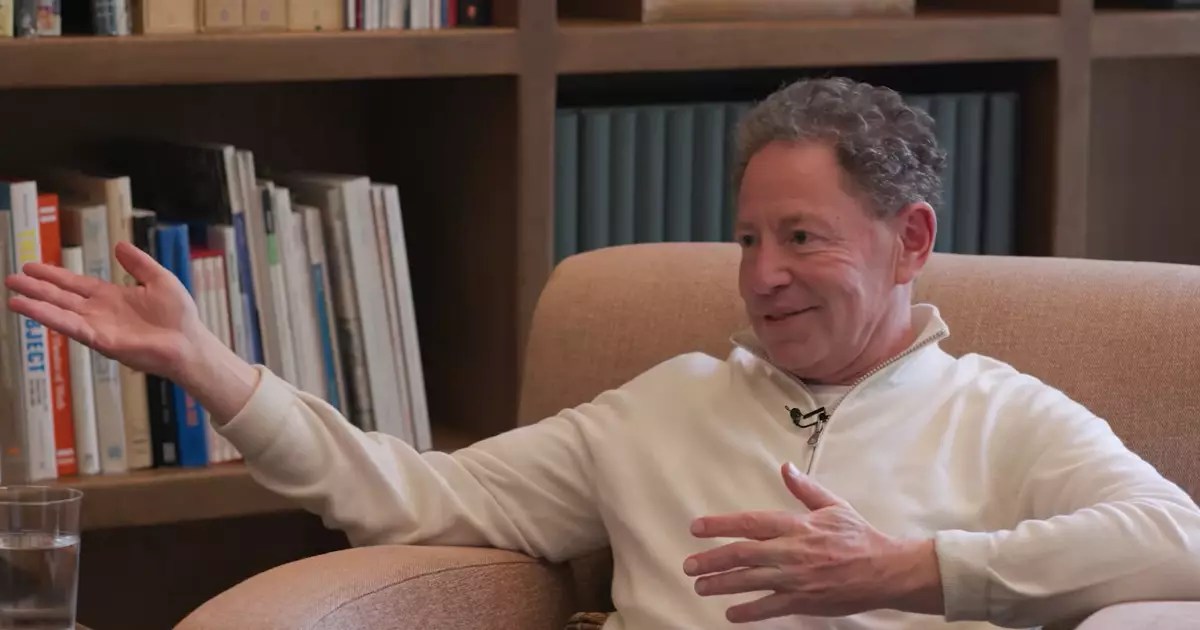The audio waves reverberated across the podcasting platforms, capturing the attention of the gaming community and beyond, when Bobby Kotick, the former CEO of Activision Blizzard, made headlines with his contentious statements on the Grit podcast. His allegations concerning “fake lawsuits” directed at his former company prompted immediate backlash from the Communication Workers of America (CWA) and other advocacy groups, who stood firmly against his characterization of the legal and social turmoil that engulfed Activision Blizzard in recent years.
Bobby Kotick’s references to “fake lawsuits” struck a nerve with many who were closely following the various sexual harassment and discrimination allegations that plagued Activision during his tenure. Kotick suggested that the accusations levied against his company were unfounded and stemmed from an orchestrated campaign by the CWA aiming to boost union membership. This narrative, however, runs contrary to documented settlements and admissions made by the company itself.
In 2021, Activision engaged in a significant legal agreement, settling an $18 million lawsuit with the U.S. Equal Employment Opportunity Commission (EEOC) related to claims of sexual harassment and unfair treatment of female employees. Notably, the settlement wasn’t just a financial measure; it also included commitments to enhance workplace protocols through anti-discrimination trainings and mental health support for employees. Kotick even publicly extended apologies acknowledging the conduct issues that transpired under his watch—a sentiment that starkly contradicts his recent podcast assertions.
The CWA spokesperson’s vivid rebuttal emphasized the chasm between Kotick’s perspective and the lived experiences of the employees at Activision Blizzard. They noted, “The claims Bobby Kotick presents in the podcast regarding the ‘fake lawsuits’ are false.” This statement, bolstered by documented evidence, illuminates the often-fraught relationship between corporate leadership and workforce realities. The disdain felt towards Kotick’s comments reflects a broader sentiment that the egos of executives may overshadow the validity of employee grievances when leadership is challenged.
Equally compelling was the commentary from the ABK Worker’s Alliance, a newly formed union representing Activision Blizzard employees. Their public statement called out Kotick’s claims as trivializing the serious and often traumatic experiences of their members. They asserted, “The trauma, discrimination, and abuse that our coworkers and former coworkers endured is not fake…” Such declarations highlight the profound impact of workplace culture on staff morale, signaling that the push for collective bargaining and union protection stems from genuine efforts to ameliorate conditions rather than orchestrated unionization tactics.
Kotick’s assertion not only skews the narrative surrounding employee experiences but also suggests a potential ideological rift in the industry regarding corporate governance and accountability. In a time where worker rights and protections are increasingly gaining traction, his comments illuminate an outmoded corporate ethos that resists recognition of internal failings. The CWA emphasized that the strength of union organization at Activision Blizzard is a testament to the inadequacies of leadership to address employee grievances effectively and compassionately.
Moreover, Kotick’s comments raise questions concerning accountability within corporate entities. His denials of personal wrongdoing and characterization of lawsuits as “fake” challenge foundational norms regarding the treatment of employees. While companies often claim their mission is rooted in values that promote fairness and respect, Kotick’s perspective undermines those assertions and points toward a disconnect between stated values and actual practice.
The testimony of employees advocating for union representation marks a significant step toward a changing landscape within the gaming industry. The collective efforts for organized labor at Activision Blizzard signal a crucial move for employee empowerment in a sector that has often been critiqued for its exploitative workplaces—a shift emblematic of a deeper reckoning with workplace culture. The reaction to Kotick’s comments by both the CWA and the ABK Worker’s Alliance serves as a reminder that calls for accountability are not merely performances but crucial demands for systemic change.
As the industry continues to unfold, the importance of listening to the voices of those within the workforce cannot be understated. Only by addressing the intricacies of workplace grievances can companies like Activision Blizzard hope to foster an environment that genuinely represents and protects the interests of its employees. Bobby Kotick’s recent statements reflect an unwillingness to genuinely confront the challenges that lie ahead, contrasting sharply with the aspirations of many for a workforce that is both equitable and thriving.


Leave a Reply